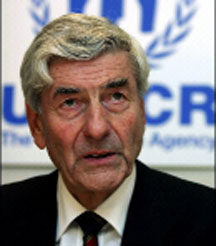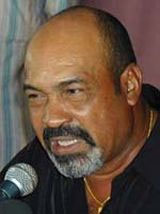Holland is formulating a detailed response to the bombshell announcement in November last year that it had planned to invade Suriname in 1986 to arrest military leader and current President Desi Bouterse.

The invasion plans were revealed to the Dutch newspaper de Volkskrant by the Prime Minister at the time of the planning, Ruud Lubbers.
The Surinamese newspaper De Ware Tijd reported in today’s edition that current Dutch Foreign Affairs Minister Uri Rosenthal wrote the Lower Chamber at the end of December informing it that he needs more time to explain this matter. According to him, it takes time to “carefully answer the partly detailed questions”. The questions were tabled by SP-member Harry van Bommel and are not only directed towards Rosenthal, but also Dutch Premier Mark Rutte. According to an article in de Volkskrant the then Premier of Suriname Pertaap Radhakishun had asked Holland to invade the country.
Radio Netherlands (RNL) in a report on its website said that the Dutch plan was set in train in response to a request from three members of Suriname’s government, including Radhakishun. The operation was to involve 850 Dutch marines with logistical support from the United States in the form of navy ships, planes and helicopters. The aim was to arrest Bouterse at one of his hideouts which the Americans had discovered.
In the end, RNL said the plan was dropped as the Dutch government considered the risk of casualties and injuries too big. Rumours of such a plan have been circulating for years but had never been confirmed.

In the de Volkskrant article, Socialist Party MP van Bommel accused former Dutch Foreign Minister Maxime Verhagen of providing inadequate answers to previous questions about the invasion plans posed by the SP. RNL said that In 2007, Verhagen said that in 1986 the Netherlands had consulted the United States regarding the possible evacuation of Dutch nationals from Suriname in view of the animosity towards them at the time.
Meanwhile, the Caribbean Media Corporation has reported that Surinamese Foreign Minister Winston Lackin has questioned the timing of Lubbers’ revelation.
“I wonder why they’re coming with this now,” Lackin was quoted as saying in the local press, according to CMC. “We always said that Holland had planned an invasion of Suriname in the 1980s, but no one believed it and now Holland itself is telling the story. But we will not be sidetracked by this now. We’re busy with the development of our country.”
Former Dutch Defence Minister Wim van Eekelen also supported Lubbers’ confirmation saying the de Volkskrant “I’m surprised at how long the existence of the invasion plan was kept secret.”
According to CMC, the newspaper said the invasion would have been carried out from the Antilles; the Dutch marines would have been flown to Curaçao’s Hato Airport under the guise of a military training.
Among their objectives was to seize control of Zanderij International Airport, 45 kilometres south of the capital, Paramaribo. A special unit of marines also would have been dropped in Paramaribo with instructions to arrest Bouterse at one of his hiding places.
Dutch troops would have stayed in Suriname for at least a month, until they believed security had been guaranteed, CMC said.
De Volkskrant said the Lubbers government crafted the plans after a messenger from Suriname had delivered a letter in October 1986 on behalf of three members of the Suriname government, including Radhakishun. The message appealed to Lubbers to intervene and arrest Bouterse.
“The Suriname request was aimed to remove Bouterse,” Dutch former foreign minister Hans van den Broek told the newspaper, according to CMC. “This does not mean that the possible Dutch military support had only this purpose. Our responsibility to the Dutch Surinamese also played a role.”
Bouterse presided over military rule between 1980 and 1988 after he and a group of army sergeants had overthrown the democratically-elected government. His rule encompassed the 1982 “December murders,” when 15 people who opposed the then military government were executed. This matter is still being investigated in Suriname.
The timing of Lubbers’ announcement is seen as politically sensitive as Holland had told Suriname that the recently-elected Bouterse is only welcome in The Hague to serve his eleven-year prison sentence for trafficking in drugs. Holland’s relations with its former colony have been frosty for the most part since Bouterse’s 1980 coup. Suriname gained independence from Holland in 1975.




